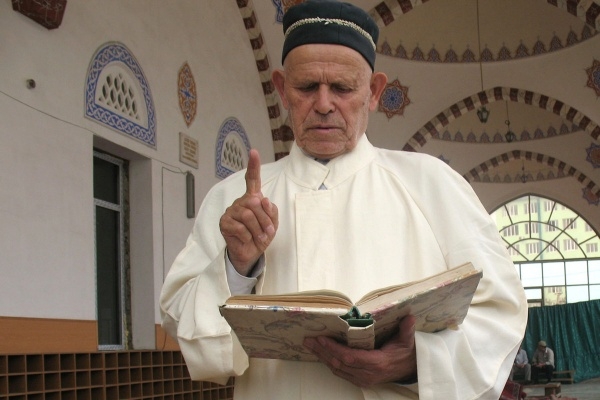Crimea’s veiled Muslim women have been complaining over being targeted by police for security checks ahead of a visit by Russian president Vladimir Putin to the black sea peninsula later this week.
“This shows that Russian police do not trust headscarfed women and see them as a separate group in the general public,” Aider Ismailov, the assistant mufti of Crimea, told Qirim News Agency.
“This is nothing but an insult against our beliefs as Muslims,” Ismailov said.
Recently, Muslim women in the capital Simferopol and Bakhchysarai have accused Russian police of pulling women with Islamic hijab over for passport checks.
Women added that they were being treated as if they were 'enemies' on their Facebook profiles.
Security check did not target women only.
Over the past few days, Crimea religious schools, or madrasas, have been searched for banned Islamic literature.
Three madrasas were searched during August 13, ahead of a law that will come into force in 2015 that bans a number of popular Islamic books, another assistant mufti, Esadullah Bairov, said.
“The books are removed as a warning, as the law is not in force in Crimea yet. Still no extremist literature was found in Crimean madrasas that were searched,” Bairov said.
The so-called “Federal List of Extremist Materials” was compiled by the Russian Ministry of Justice on July 14, 2007 and contained 1,058 items as of December 25, 2011.
According to the ban, producing, storing or distributing the materials on the list is an offense in Russia.
Some Islamic books that have been banned include the work of popular 20th century Turkish scholar Said Nursi and the famous “Fortress of the Muslim” book of supplications of Prophet Muhammad, which was collected by ancient Muslim scholar Saeed Bin Ali Bin Wahf Al-Qahtani.
A certain biography of the Prophet Muhammad (PBUH) is also banned.
The 300,000-strong Muslim minority makes up less than 15 percent of Crimea's population of 2 million and has so far been overwhelmingly opposed to Russia's annexation of the peninsula.
The Russian move to annex Crimea followed an earlier vote in March on the peninsula’s future.
The referendum, approved by 96 percent, was followed by several steps from pro-Moscow Crimean parliament, issuing a law that allows Russia’s annexation of the disputed peninsula.
The hastily organized March 16 referendum was boycotted by Tatars who rejected as held at gunpoint under the gaze of Russian soldiers.
After Russian annexation of Crimea, fears of Muslim Tatars were doubled, voicing concerns over losing freedom and reviving the memories of exile and prosecution they faced in 1944.
Over the past months, hundreds of terrified Muslim Tatars families have decided to leave their homes in Crimea, fleeing an ambiguous future under the Russian regime after annexation.
Source: OnIslam



